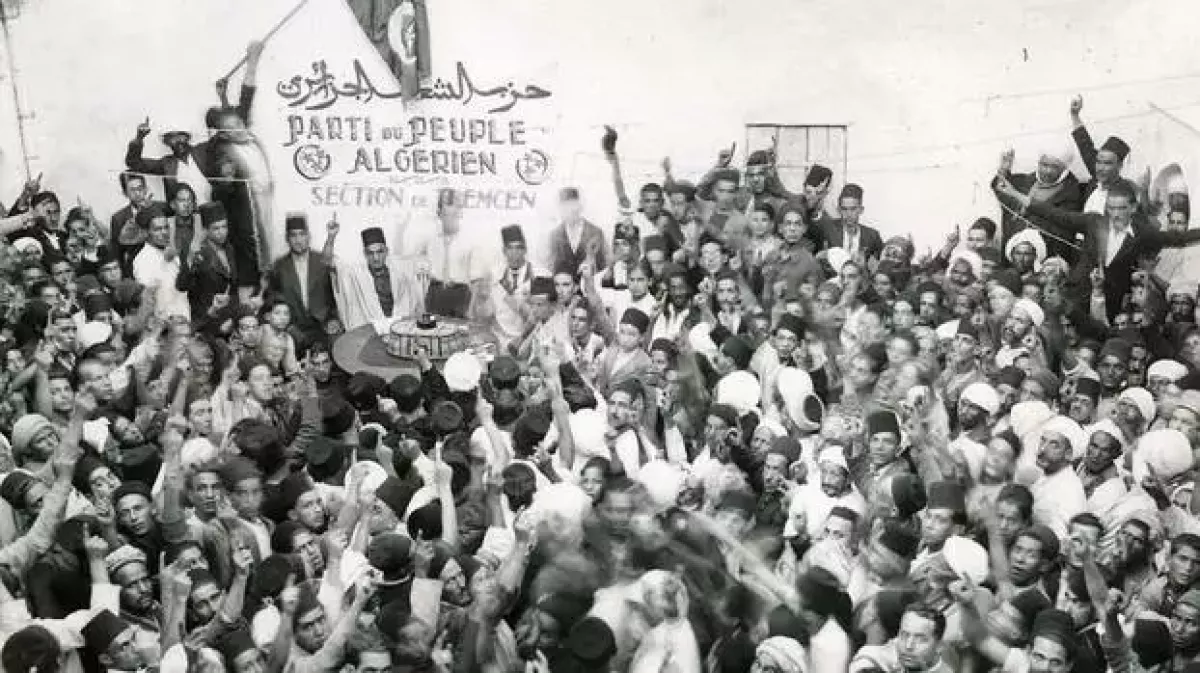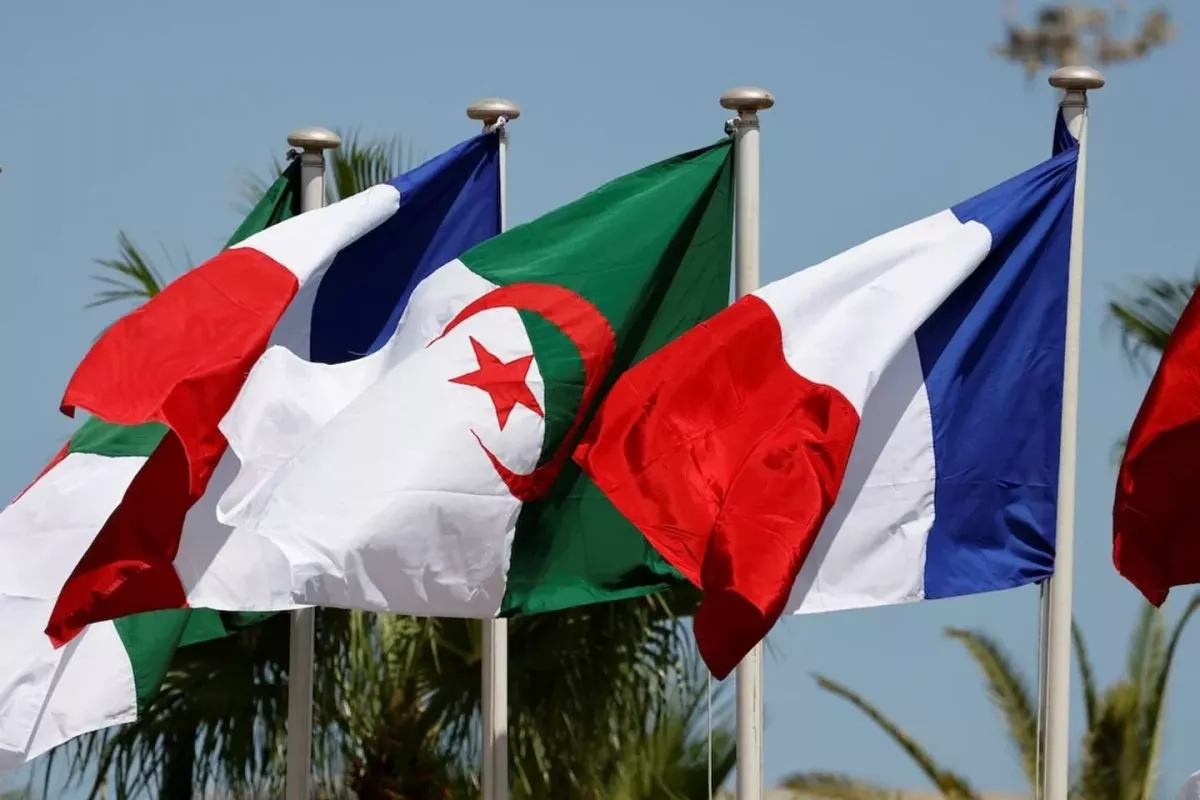France faces growing calls to acknowledge 1945 massacre of Algerians PUBLICATIONS by RFI AND TRT WORLD
As France and Europe commemorate 80 years since the Allied victory over Nazi Germany, Algeria is marking another painful anniversary – the massacre of thousands of Algerians by French colonial forces in 1945, widely seen as the beginning of the country’s struggle for independence.
This week, a delegation of 30 left-wing French parliamentarians travelled to Algeria to participate in memorial events and urge France to accept responsibility for the violence, Caliber.Az reports per RFI.
“It’s important on this symbolic date to have a French delegation to show that in France, there are not only enemies of Algeria, as we have seen with the heated debates of the past few months,” said Greens MP Sabrina Sebaï, speaking to RFI. She added that the visit aimed “to send a message also to say that there is a deep work to do on issues of memory and reconciliation”.
The visit has sparked controversy in France, particularly among right-wing politicians. Laurent Wauquiez, president of the conservative Les Républicains party, denounced the trip: “The day of 8 May, which is a day of national pride, you have French elected officials who go to Algeria to participate in self-flagellation and humiliation,” he said.
The commemorations mark the events of 8 May 1945, when Algerians gathered in the city of Sétif to celebrate the Allied victory, with some displaying flags and banners calling for independence. French authorities demanded the banners be removed; when demonstrators refused, troops opened fire.
News of the violence quickly spread to nearby towns, including Guelma and Kherrata, where unrest broke out. Around 100 French settlers were killed during the upheaval, prompting a brutal crackdown by colonial forces.

Then-leader Charles de Gaulle authorised “all necessary measures to repress all anti-French acts”. Backed by the military and air force, French troops bombed villages and conducted summary executions across the region. Civilians, including women and children, were killed in large numbers throughout May and June.
Algerian authorities estimate 45,000 people died in the violence, while historians place the figure between 15,000 and 20,000. Filmmaker Mehdi Lallaoui, who produced a documentary on the Sétif massacre, said: “Eighty years later, we do not know exactly the number of people who died in May and June 1945 because there was a code of silence.” He noted that survivors were imprisoned and that officials tried to erase the events from public memory.
General de Gaulle is said to have instructed subordinates to “bury the whole affair”, which was long referred to simply as “the events”.
In Algeria, however, the massacres at Sétif, Guelma and Kherrata galvanised a nascent independence movement, which until then had been fragmented. Resistance groups became increasingly organised, culminating in the launch of the Algerian War of Independence on 1 November 1954. France eventually relinquished control of the territory in 1962.
Algeria designated 8 May as an official day of remembrance in 2020. In France, however, no such recognition exists, despite mounting calls for official acknowledgement of the state’s role in the violence.
“Algeria’s independence remains a trauma in the French public opinion,” historian Nils Andersson told RFI. “There is an anti-Algerian feeling in France – the colonising country – and I think the role of political leaders is to have the courage to recognise the facts about colonialism, which is neither an act of contrition of repentance, but just a moral and truthful act.”
France’s ambassador to Algeria referred to the 1945 killings as an “inexcusable tragedy” in 2005, and a government minister visited the Sétif commemoration site a decade later.

This week, left-wing MPs submitted a proposal to recognise the massacres as a “state crime perpetrated against an unarmed civilian population”.
The move comes amid strained relations between the two countries. French Interior Minister Jean-Noël Barrot acknowledged on Tuesday that ties were currently “blocked”.
For centrist Senator Raphaël Daubet, a member of the delegation, re-engaging with Algeria requires “the recognition of these massacres” that occurred in Sétif, Guelma and Kherrata.
Meanwhile, Turkish television company TRT World reports that, Algerian Interior Minister Brahim Merad has said that France will “inevitably” recognise the colonial crimes it committed in Algeria, during a ceremony held to mark the 80th anniversary of the May 8, 1945, massacres carried out by French colonial forces.
Speaking on Thursday, Merad stated, "There is awareness among some philanthropists in France that the crimes committed by France’s colonial rule (1830–1962) during the revolution (1954–1962) did not happen anywhere else before.”
The massacres, which took place in 1945, saw French colonial authorities kill 45,000 peaceful demonstrators demanding independence, following Algeria’s support for France during the Second World War. The brutal crackdown reportedly lasted more than 40 days and involved mass executions and other harsh repression tactics.
“French and Algerian historians had found out that the colonial crimes committed in Algeria were unprecedented in other regions of the world,” Merad said, adding that a growing awareness within France would compel the country to acknowledge its past actions.
"The heinous crimes committed on May 8, 1945, were among the factors that expedited the outbreak of the revolution of November 1, 1954," he noted.
This year’s commemoration takes place against the backdrop of heightened tensions between Algiers and Paris. Diplomatic relations have deteriorated in recent months, with both countries recalling ambassadors and expelling diplomats amid ongoing disputes over historical memory and France’s colonial legacy in Algeria.
By Aghakazim Guliyev








